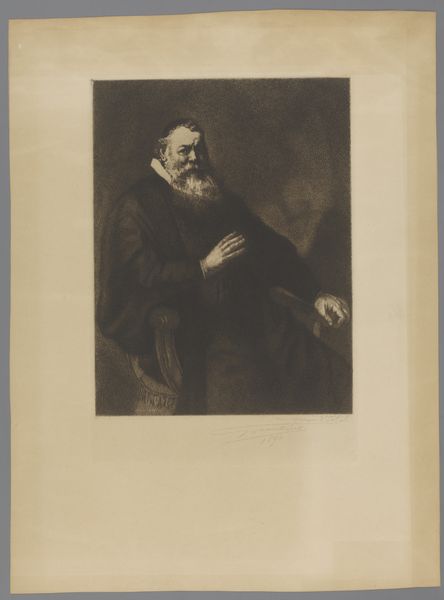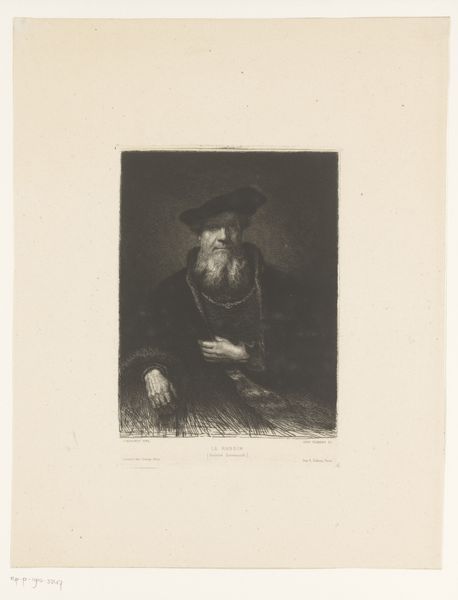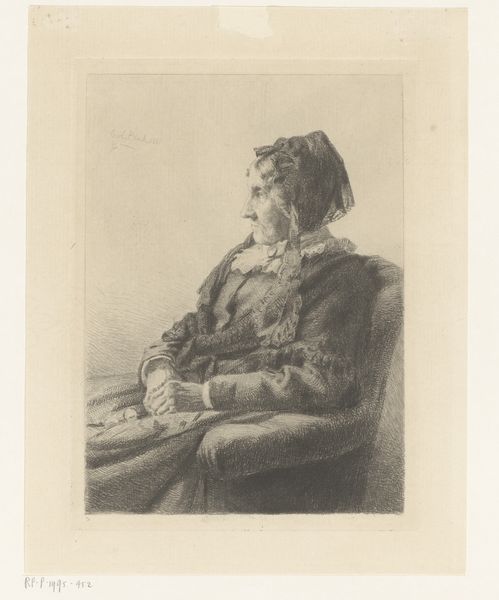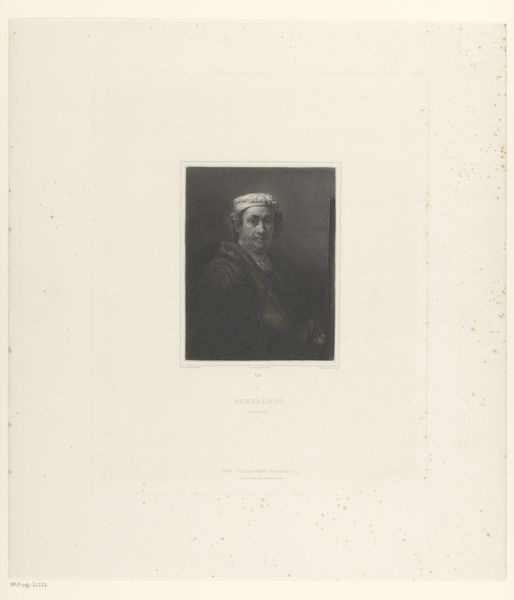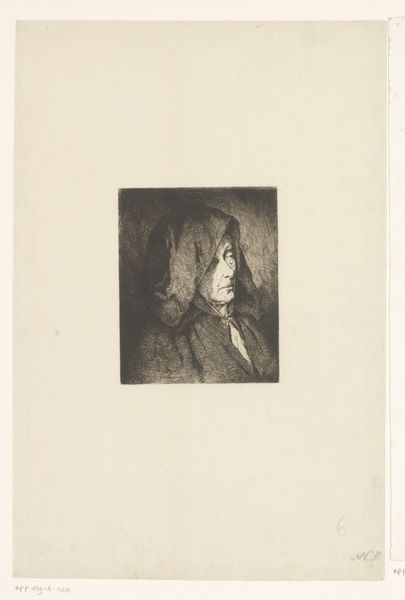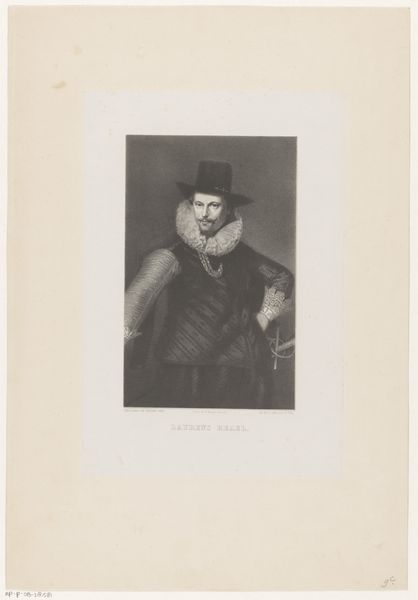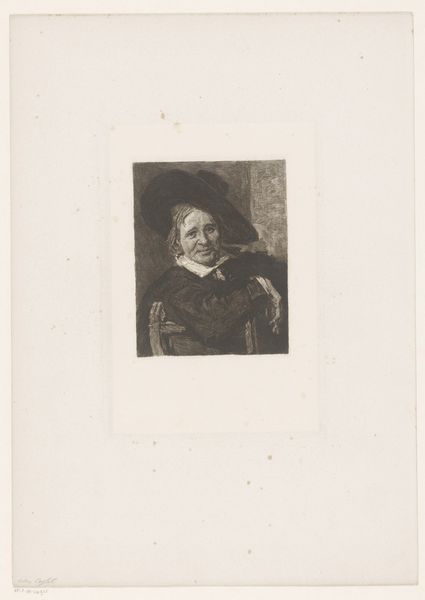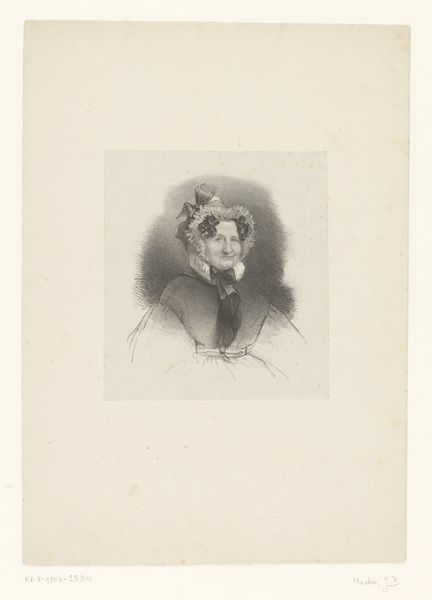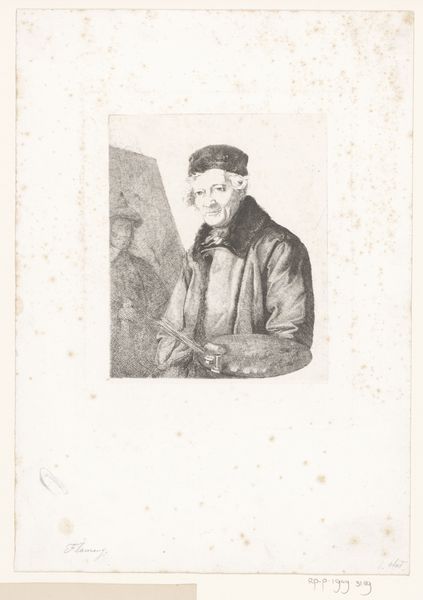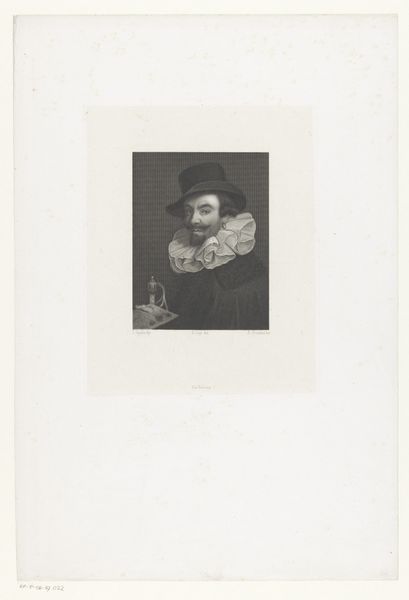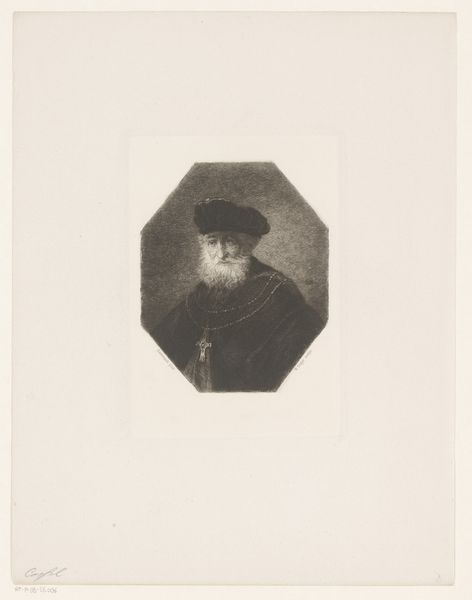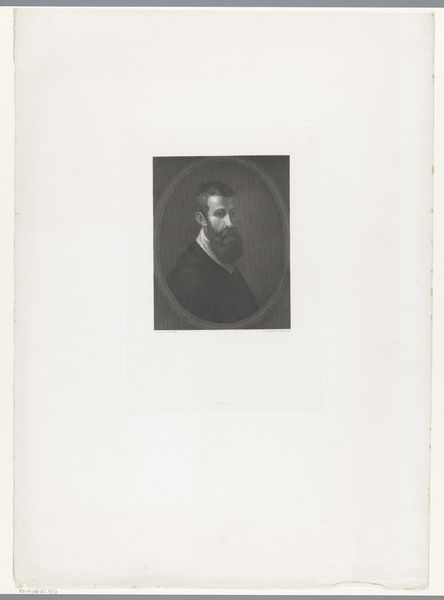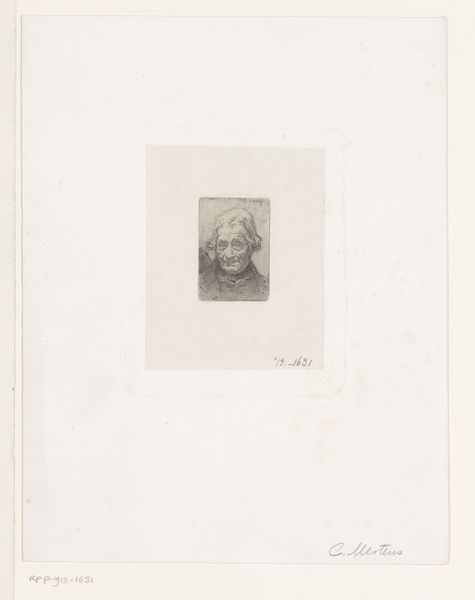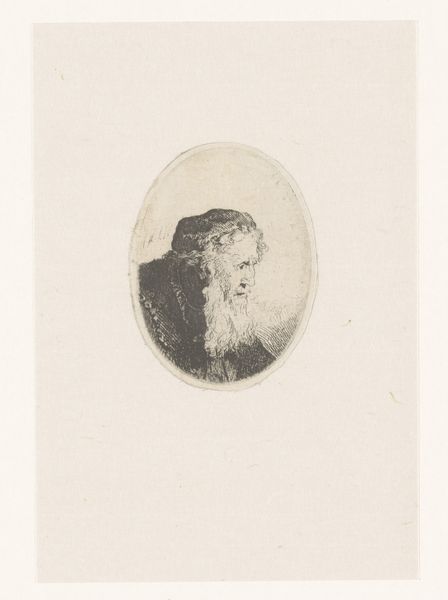
drawing, print, etching
#
portrait
#
drawing
# print
#
etching
#
figuration
#
academic-art
#
realism
Dimensions: height 255 mm, width 174 mm
Copyright: Rijks Museum: Open Domain
This is William Unger's "Portret van Nicolaas Bruyningh," an etching now held in the Rijksmuseum. The portrait is presented in stark monochrome, where the varying densities of etched lines define the form and texture of the sitter. Note how the subject is framed within a rectangular boundary, emphasizing the constructed nature of the image. Unger, working in the late 19th and early 20th centuries, situates himself within a broader discourse about representation and realism. The semiotic structure of the portrait—the sitter's gaze, posture, and clothing—conveys particular cultural codes associated with status and intellect. Yet, the etching technique, with its inherent capacity for detail and texture, simultaneously invites us to consider the materiality of the artwork itself. Consider how the composition, with its limited tonal range, encourages a reading of form and structure. The portrait, therefore, functions not merely as a likeness but as a complex interplay of artistic technique, cultural signification, and historical context. Art, after all, does not offer fixed meanings but is open to endless interpretation.
Comments
No comments
Be the first to comment and join the conversation on the ultimate creative platform.
